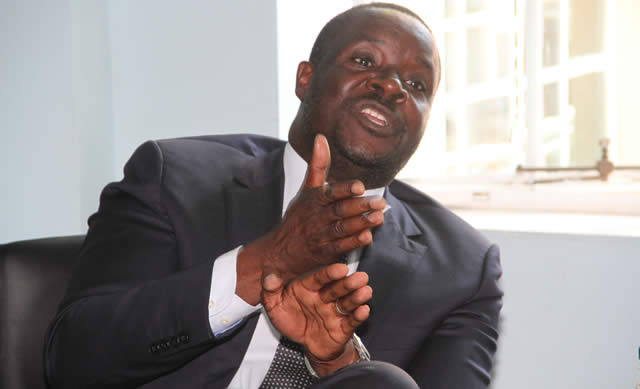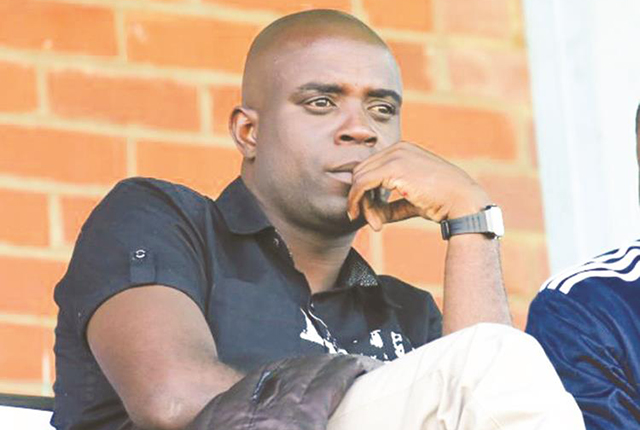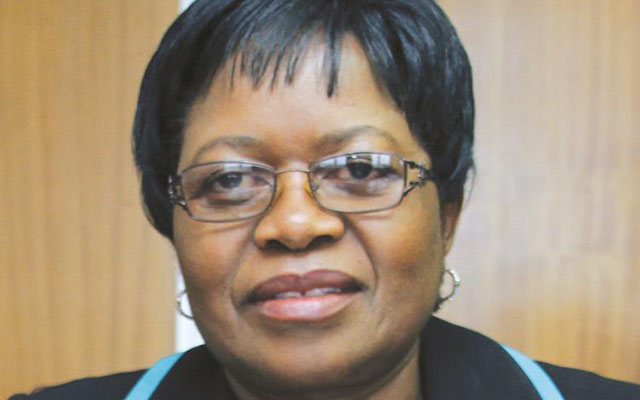This is NOT Manheru speaking!


Cde George Charamba
RADAR
So, there has been a universal sense of grief that Nathaniel Manheru is no more, killed as he was by the person of Cde George Charamba, who a fortnight ago, outed himself as the ghost that hung on the column that appeared in The Saturday Herald.
Manheru’s column, The Other Side, had a huge following across the political divide and no doubt these varied audiences used and found gratification in it for equally varied reasons: on the main, though, it was a useful barometer to gauge what “the system” felt and thought.
Salutary, it gave invaluable hints of what could happen; illuminated key processes and triggered discussion on many issues.
Not that Manheru was always forthright.
Sometimes he could be cryptic and impenetrable. Let’s just say to the uncircumcised.
But that was hardly his greatest crime among his followers.
In fact he was accused of many things.
He was first of all accused of being a ghost, which he helpfully acknowledged on a black, teary day when he told the family of one Dickson Chingaira that he was indeed Nathaniel Manheru.
Cde Charamba said he was telling Zimbabwe, not just this small audience.
And boy, the news spread, and just as he had wanted, with the media latching onto the intelligence.
But it was no news really.
At some point he had told a radio station that Charamba was one with Manheru and on another mournful instalment, on the instance of the passing on of one Thomas Deve, he barely varnished himself.
There was Cde Charamba weeping.
Distraught.
It may yet be something of interest that on the occasion of Cde Chinx’s death, Cde Charamba revealed the identity of Manheru.
We are not qualified to comment on people’s psychology but there can be an informed guess informing us how grief has the effect of breaking down even strong men like Cde Charamba.
In fact, there has been a lot of speculation as to what triggered Cde Charamba’s revelation and whether it was a planned and tactical retreat from the public space or just an emotional, spur-of-the-moment reaction.
But a more rational understanding is that Cde Charamba, given the times and politics that the country is facing, wanted to withdraw to possibly assume another role, if any, in reshaped national discourse starting from Manheru’s Zanu-PF.
For, indeed, national politics has changed a lot and what gave rise to the Manheru column, namely, as Cde Charamba put in his last piece, the onslaught by, and saturation of Western sponsored narratives, has pretty much subsided.
The dichotomous politics of the last two decades are also dying.
2018 is surely going to kill it off. And it is not lost to a follower of politics that Zanu-PF itself has to have a new narrative which is painfully being birthed right now. That is, corollary to new and inevitable configurations. As we shall see.
Now, is it not interesting that Nathaniel Manheru remains an enigma and subject of speculation even after his successful exposure? Someone was remarking the other time that the beauty of the old, “dead” column was its masked identity which lent an air of mysticism, even when the identity was not so mysterious after all.
Which led Mabasa Sasa, himself one of the biggest fans of Manheru, to remark in his paper — The Sunday Mail — recently that the identity of Manheru was one of media’s “worst kept secrets”.
Let’s go back to the many things that Manheru was accused of.
We often saw people complain on the feedback that the column was too heavy; verbose, and quite generous with big words that lost meaning to the ordinary reader.
But this accusation was misplaced. We should have accepted that the column had its audience and publics.
That is a fact.
It was always not going to mean everything to everyone, which is simply unconscionable, not to mention that it was in the first place designed for the academic-political audiences.
And it stayed true by way of content and delivery.
Which leads us to the grudging admission that we also found some articles rather too heavy, even for our fairly receptive heads.
Sometimes we just could not find much use for history and Manheru’s tussling with other tellers of history, especially Rhodesians.
And Manheru often accused journalists of being illiterate, something that does not go down well with journalists.
Journalists always look out for soundbites, and you can understand the frustration of journalists when Manheru would not be direct with this serving of soundbites, preferring to be cryptical and burying “the real story” in the middle of some historical muddle or some literary theses and treatises.
Journalists were also frustrated when Manheru would skip a week or two, which would usually coincide with President Mugabe’s visits away — itself one of the greatest hints as to the identity of the column.
But journalists loved Manheru, anyway. And when they projected Manheru to Cde Charamba in public the love was not dissimilar.
We think Cde Charamba is a nice fellow.
We also think that we can now challenge him to see to it that the Manheru columns, all of them, are put together into a very nice book that students of history and politics should find useful.
Writing this, I am assured that a request to that effect was recorded in Cde Charamba’s Munhumutapa office some years back when it was incumbent to go and collect the column, stowed in a flash down, to input into our systems for the morrow’s reading.
And sometimes it would be necessary to wait upon the writer finishing off his lines, which could draw very long.
And it was nervy, too, having to field a couple a questions from the ghost behind Manheru, rendering the whole nocturnal encounter somewhat eerie.
Manheru was technology-shy, with even his mail kept somewhere and feedback printed out for his perusal.
But it all added to the mysticism, didn’t it?
Replacing Manheru . . .
We had made a special request to the Editor in Chief of The Herald that the yawning gap left by Nathaniel Manheru, that is in the physical space and columns of the newspaper, be filled with this column, which you already may have been following in the past two or so years.
Albeit, it has been home on the right page.
If the Radar were to graduate to replace Manheru, it comes with its own challenges.
We may forgive some people for actually thinking that is a new column altogether replacing Manheru.
But that is barely the biggest threat. The danger is that people may actually think that Manheru has resurrected and assumed a new identity.
This fear is well grounded.
On a couple of occasions, Cde Charamba has been accused of running both the Radar and Manheru columns.
On other, worse, occasions, the Radar has been accused of mimicking Manheru, an accusation that both tickles and offends in almost equal measure.
Let us demonstrate a bit on the confusion surrounding the identity of Radar.
Last year, Jealousy Mawarire, when he was still spokesman at Zimbabwe People First, accused Cde Charamba of penning the Radar.
He wrote on April 16, 2016:
“After reading the latest Radar column in the Herald of 16 April 2016, I really felt sorry for its writer, one George Charamba. If there is one thing that George Charamba should know, it is that God, not Zanu-PF or its god President Robert Mugabe, ‘blesses his people with peace’ (Psalm 29:11).”
Mawarire went on to accuse “Radar Charamba” of many things.
Here is a sample of Mawarire’s tirade:
“It is, therefore, preposterous and equally hypocritical, for these troubled people like Radar Charamba, to then look at some of us and think we are not at peace. I liken that behaviour to a situation where a Ngomahuru or Engutsheni inmate thinks his benefactor, the one who would have come to make donations to the institution, is actually more mentally deranged than him.
“Is it not ironic that people like us who, under the auspices of Zim PF and under the leadership of Dr Joice Mujuru, are fighting for the freedom of those that are in bondage, like Radar Charamba, can be mistaken for being troubled?
“We might not be as rich as the looters of our national coffers like Radar Charamba and his PSMAS partners in crime, but we are certainly managing by the grace of the Lord Jesus Christ who has always been our provider and in whose bosom we find our being and happiness.”
We had a nice little chuckle at this folly from someone who claimed to know so much.
. . . With another “ghost”
Which is enough to say that there is a lot of attention that Radar has attracted including familiar accusations that its writers are bigoted and mysoginistic and everything else basically.
And on the material accusations of being penned by Manheru, we must admit that as a paper we draw from each other as from our unique backgrounds.
Hence, you are bound to see the fingerprints of a Caesar Zvayi, a Mabasa Sasa, a Joram Nyathi or even a Tichaona Zindoga.
As a matter of fact, when we conceived this column, it should ideally not have a single author but a number of good writers — and pay attention — who reflected on the week’s events in the news and provide critiques of both issues and coverage.
To be a robust opposite number of Muckraker or something like that. Which is how you see a lot of critique of media coverage and zooming in on certain issues in a sometimes — let’s say usual — aggressive manner.
That is how it should be.
Cde Charamba has never been a guest of our column, busy as he has been with Manheru.
That is the good thing.
The bad is that having to explain ourselves has eaten off a whole column today!









Comments